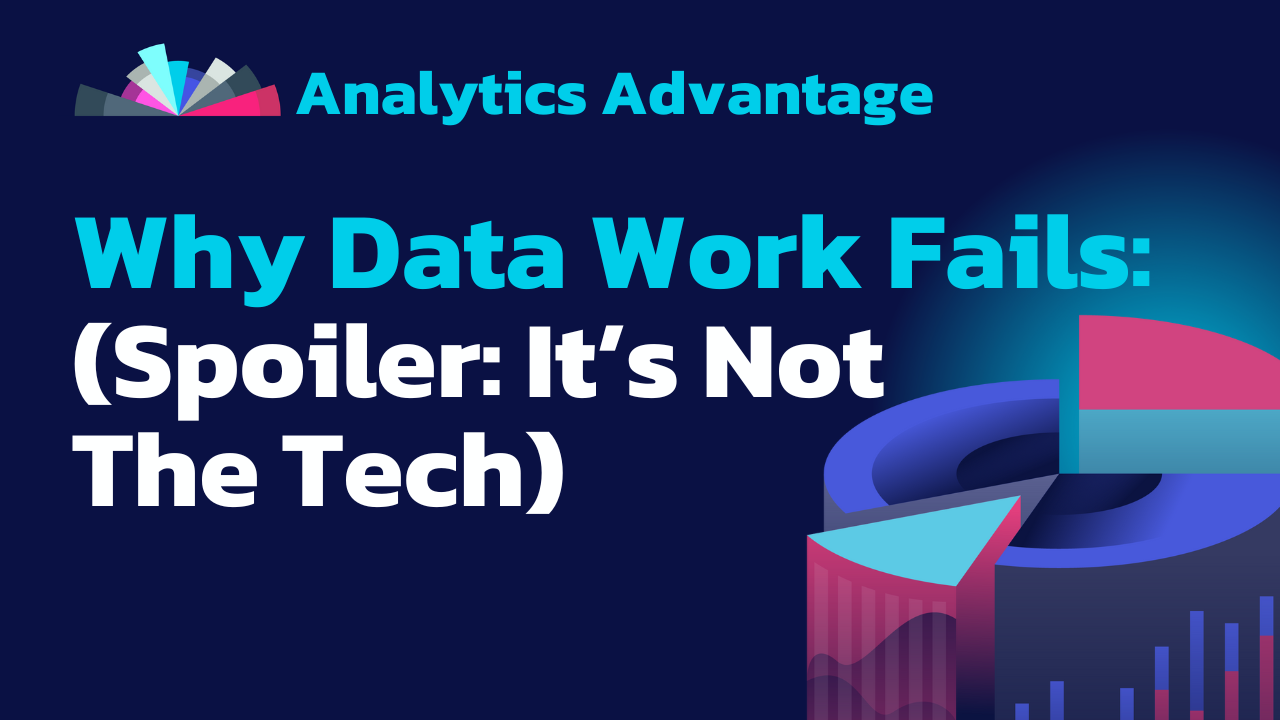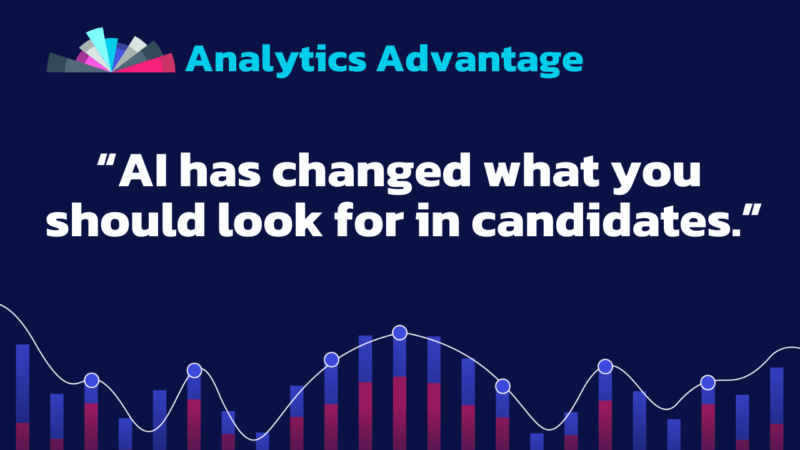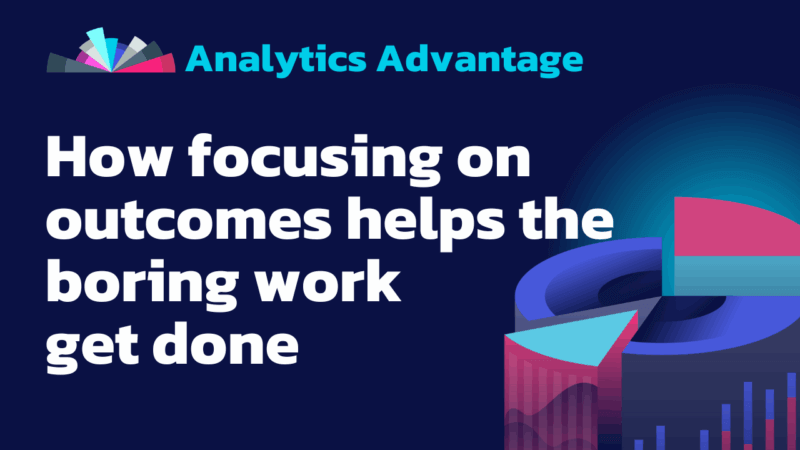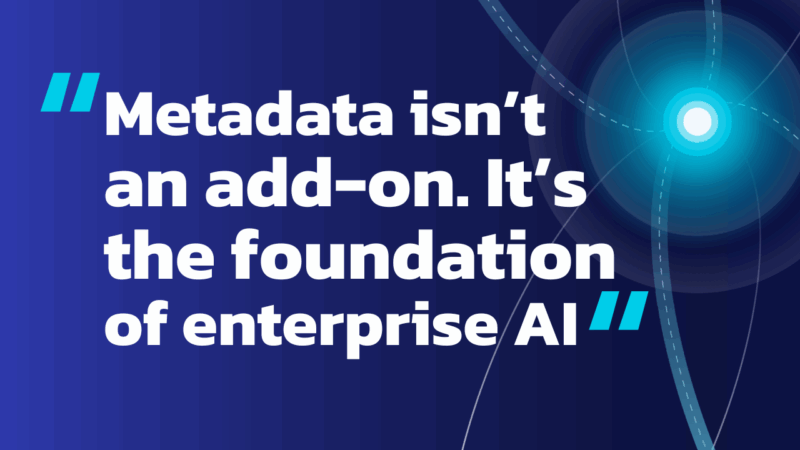
Newsletters
Portrait of a Purposeful Data Leader
Most people think data work fails because of technical debt or messy dashboards.
But beneath the surface, it’s really a leadership problem.
In this newsletter, I’ll outline what it means to be a purposeful data leader — someone who can navigate ambiguity, build data leverage, and lead people in a way that actually works.
Why Data Work Really Fails
Most organizations don’t struggle to leverage data due to a lack of tools, resources, or highly skilled people. They fail because of ineffective leadership.
There are countless books on leadership, but few focus on data leaders. And, to be honest, most seem more interested in selling books and courses than in developing leaders. I’m not a fan.
In this issue (and over the coming weeks), I’ll share my vision for purposeful data leadership.
This week, we’re exploring three key themes:
- Purposeful: What does it mean to pursue a larger goal amid the daily chaos of work?
- Data: How do we create data leverage to uncover growth or find efficiencies?
- Leader: We’re often more comfortable with code than coaching, so how do we cross the Rubicon from technical expert to people leader?
Data work fails because of ineffective leadership, not from a lack of tools or talent.
Purposeful
Work is mostly chaos, a tangled web of interactions among people trying to generate enough revenue to sustain our jobs. Stop for a moment and think back on yesterday. How much of the day went “according to plan?” Last week? Quarter? Year? Feeling a bit overwhelmed?
To be clear, I’m not addressing the existential question of “What is our purpose?” I’m highly unqualified to answer that. But I can define what it means to be purposeful.
Being purposeful means having a vision and goals, with flexibility in achieving them. Every task is an opportunity to align it with the vision. How can each person make a small but meaningful contribution to the goals for the quarter? Often, it’s less extra work than we realize.
Here’s where leadership comes in, because purpose doesn’t happen in a vacuum. A leader is someone who has the ability to turn ambiguity into action. They take a half-baked idea and frame it for those who need more clarity. They are a buffer for their people from the chaos and changing whims of management. They steer people’s motivation toward the long-term needs of the organization.
While leaders often seek out people willing to experiment, not everyone is naturally inclined that way. Purposeful leaders create safe environments that encourage experimentation and accept failures as learning opportunities.
Purposeful leaders turn ambiguity into action, steering teams toward long-term goals.
Data
Data is the lifeblood of a purposeful data leader. Naming it a “calling” feels like LinkedIn influencer jargon, but it’s where the data leader feels most comfortable. It helps them make sense of the world around them.
Purposeful data leaders see data as a strategic tool, not merely a historical record. Like sculptors, they refine raw data into corporate masterworks. They identify strategic advantages in datasets and craft processes that drive growth and efficiency.
They also clearly identify data’s limitations. More importantly, they understand what data shouldn’t be used for. Their boundaries may seem uncompromising at times, but these limits reflect strong values and ethics. They design human-centered systems and resist using data to deceive, exploit, or manipulate.
Data is a strategic tool, not merely a historical record.
Leader
Here’s the tired trope every manager repeats: “Leadership is an attitude, not a title or position.” I dislike it, but it remains true. If you want to be a leader, act like one.
Organizations today face immense pressure to flatten hierarchies. This has two outcomes:
- Managers must become effective leaders.
- Individual contributors gain greater influence.
A purposeful data leader is someone who:
- Sets a clear vision
- Empathetically leads their teams
- Navigates corporate politics to leverage data effectively
We’ve discussed vision-setting, but translating that vision to every team member is equally critical. Purposeful data leaders clearly frame tasks, demonstrating how each contributes to the broader goals. They create environments that motivate and excite people—even if it’s optimizing paperclip pricing.
“Emotional intelligence” may be trending, but purposeful data leaders genuinely care about their teams and their success. Work occupies less than a quarter of our week, but it deeply influences our self-perception and sense of purpose. Purposeful data leaders navigate emotions with skill, empowering their teams to achieve their best.
Corporate politics is universally disliked but unavoidable. Purposeful data leaders effectively navigate this landscape without compromising their integrity. They put politics in its rightful place—focusing on achieving the vision and protecting their teams.
If you want to be a leader, act like one.
What Comes Next?
Data leaders don’t need more inspiration. They need clear frameworks to help them lead in the midst of the noise.
Over the next few weeks, I’ll show you exactly how that looks, one essential trait at a time.
Shaun Davis, your personal data therapist, understands your unique challenges and helps you navigate through the data maze. With keen insight, he discerns the signal from the noise, tenaciously finding the right solutions to guide you through the ever-growing data landscape. Shaun has partnered for 10 years with top data teams to turn their data into profitable and efficiency hunting action. Learn more about Shaun.





